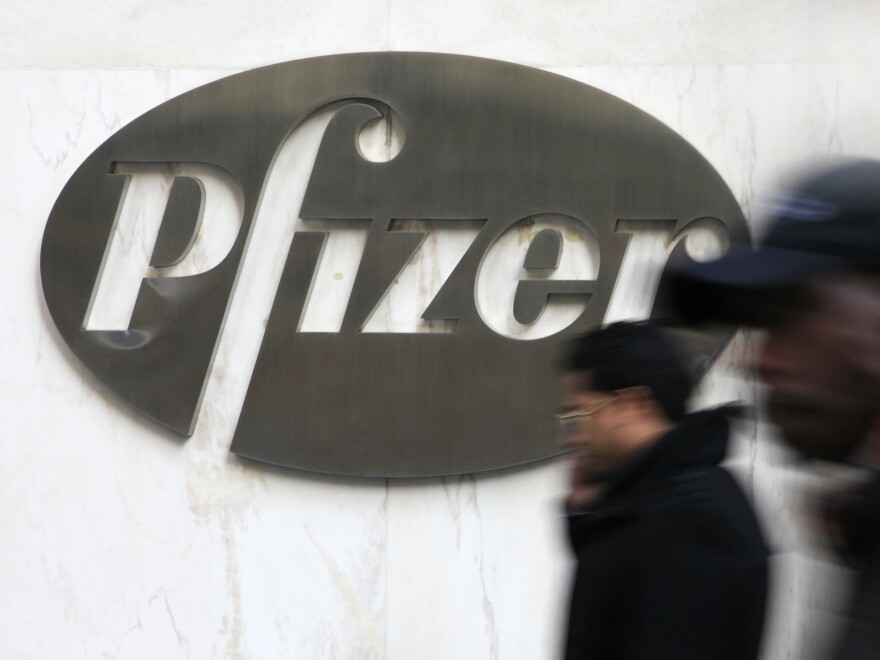Pfizer's experimental COVID-19 vaccine appears to be working. The vaccine was found to be more than 90% effective, according to clinical results released by the company Monday.
That news comes from an interim analysis of a study involving 43,538 volunteers, 42% of whom had "diverse backgrounds."
Each participant got two injections spaced 21 days apart. The analysis compared the number of cases of COVID-19 among the volunteers getting the vaccine, with an approximately equal sized group of volunteers who got an injection of a liquid that didn't contain the vaccine.
In a news release from Pfizer and its partner BioNTech, the company said results from 94 evaluable cases of COVID-19 among study participants indicated the more than 90% effective in preventing COVID-19. The Food and Drug Administration set a minimum effectiveness bar at 50%.
This is the first COVID-19 vaccine in development to have data showing that it exceeded that mark.
While promising, this analysis alone does not provide enough information about the vaccine for Pfizer to ask the FDA for permission to distribute the vaccine.
The agency has informed manufacturers that it wants a minimum of two months of follow-up data from at least half of the volunteers. FDA says the reason for that requirement is that most dangerous side effects from a vaccine occur within two months of getting the final injection. Pfizer says those data won't be available until the third week in November.
The company didn't say how serious the COVID-19 cases were that occurred in the study, or whether any of them required hospitalization.
The Pfizer vaccine trial is what's known as an event-driven study. It does not last for a specified period of time. Instead, the study will continue and won't be considered complete until it has recorded a total of 164 cases of COVID-19 among all the volunteers.
As described in its publicly released protocol, the company had planned to conduct four interim analyses, when a proscribed number of COVID-19 cases had occurred. The results released today are from the second one, the company having agreed with the FDA to forgo the first analysis.
Copyright 2020 NPR. To see more, visit https://www.npr.org. 9(MDA1MjI2NzUxMDEyNzQyMTY5MjQ2YzkwNA004))







